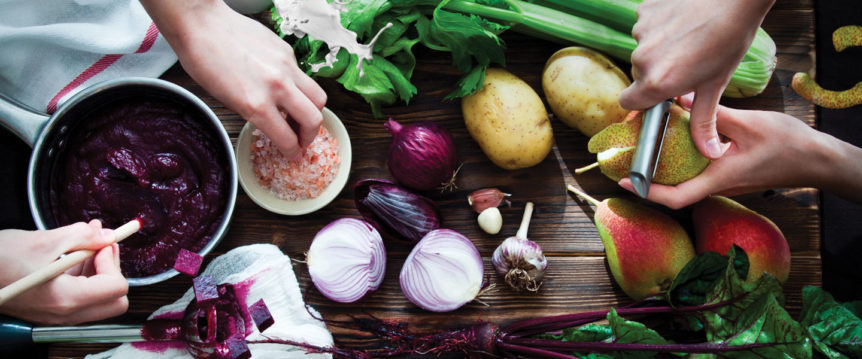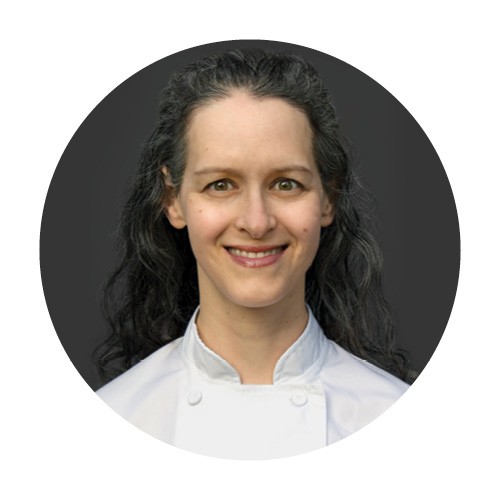Several days before you plan to make a recipe, read it through and ask yourself: What steps can be done ahead of time? If there are a lot of spices to measure out, you could make a spice rub over the weekend for a midweek meal. Or you can chop the veggies the day before and store them in the fridge.
Another question I like to ask myself: Which steps of the meal are passive and which are active? Active steps require your attention and work, whereas passive steps require just light supervision. An example of passive cooking is roasting whole sweet potatoes in the oven on the weekend and then using them in recipes or eating them plain as a side dish during the week. Because they don’t require much actual work, I can get these passive elements of the meal taken care of while I am doing other things around the house.
Chef Hilla Abel is a cooking instructor on a mission to empower others to prepare nourishing, delicious food. She is a graduate of the Natural Gourmet Institute for Health and Culinary Arts and serves as lead chef instructor of the Natural Chef Program at Bauman College in Berkeley, California.
Have a cooking-related question?
We have chefs who can help! Send your questions to editor@livenaturallymagazine.com.


